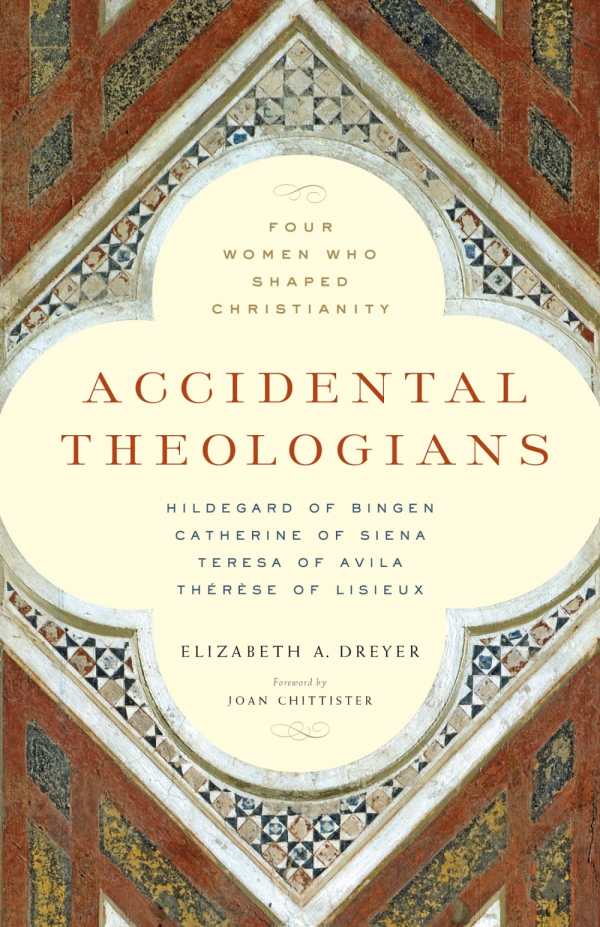Accidental Theologians
Four Women Who Shaped Christianty
Dreyer’s intelligently constructed illumination of four female theologians is both informative and piquing.
Religious studies professor Elizabeth A. Dreyer returns with a work that highlights four luminescent women doctors of Catholic theology. Devotional and reverent in tone, her work blends traditional theology with modern spiritual exercise to help bring the early writings of four focal saints to bear today.
Dreyer’s work acts as a bridge between lay thinkers of the past and present. She notes that women are often forgotten or deemed negligible in the annals of Church history but remarks upon the needlessness of this. The women she focuses on—Hildegard of Bingen, Catherine of Siena, Teresa of Avila, and Therese of Lisieux—were controversial and admired figures even in their days, women who challenged boundaries and pushed theological notions in exciting new directions.
Still, even those amongst the four who were sainted shortly after their deaths had to wait until last century to have their contributions acknowledged alongside those of influential men, finally joining them as Church Doctors. Dreyer asserts that the directions and accomplishments of their lives offer a means for those still marginalized within the Church to identify even with its past.
Such connections are accomplished efficiently. The chapter on each saint concludes by connecting theological works to contemporary issues: Hildegard’s fiery challenges to the status quo of her time become a call to action for modern Christians, whereas Teresa’s meditations on the connections between God and humanity find their relevance echoed by today’s spiritual seekers. Brief lists of theological questions punctuate these time-collapsing emphases.
Dreyer gives herself a brief span to explore each woman’s contributions, and biographies and theological excerpts are delivered tidily. Readers don’t receive full pictures of their works or lives this way, and chapters are unapologetically devoid of harsh criticisms. What church and history owe to these women and their brilliantly innovative thinking is focal; individual flaws are a topic for other works. Dreyer succeeds in delivering enough of both their writings and their brave biographies to inspire further interest, and where readers identify with individual saints, they can seek the full text of referenced works.
These choices work in concert with Dreyer’s addressed “we.” The readership she courts seems to be a believing one, often female and Catholic. The hope she ultimately expresses—that knowing these women better will be an enriching experience for those whose spiritual lives are too often undernourished by communities led by men—may be satisfied by these rich chapters that demonstrate her knowledge.
Reviewed by
Michelle Anne Schingler
Disclosure: This article is not an endorsement, but a review. The publisher of this book provided free copies of the book to have their book reviewed by a professional reviewer. No fee was paid by the publisher for this review. Foreword Reviews only recommends books that we love. Foreword Magazine, Inc. is disclosing this in accordance with the Federal Trade Commission’s 16 CFR, Part 255.

